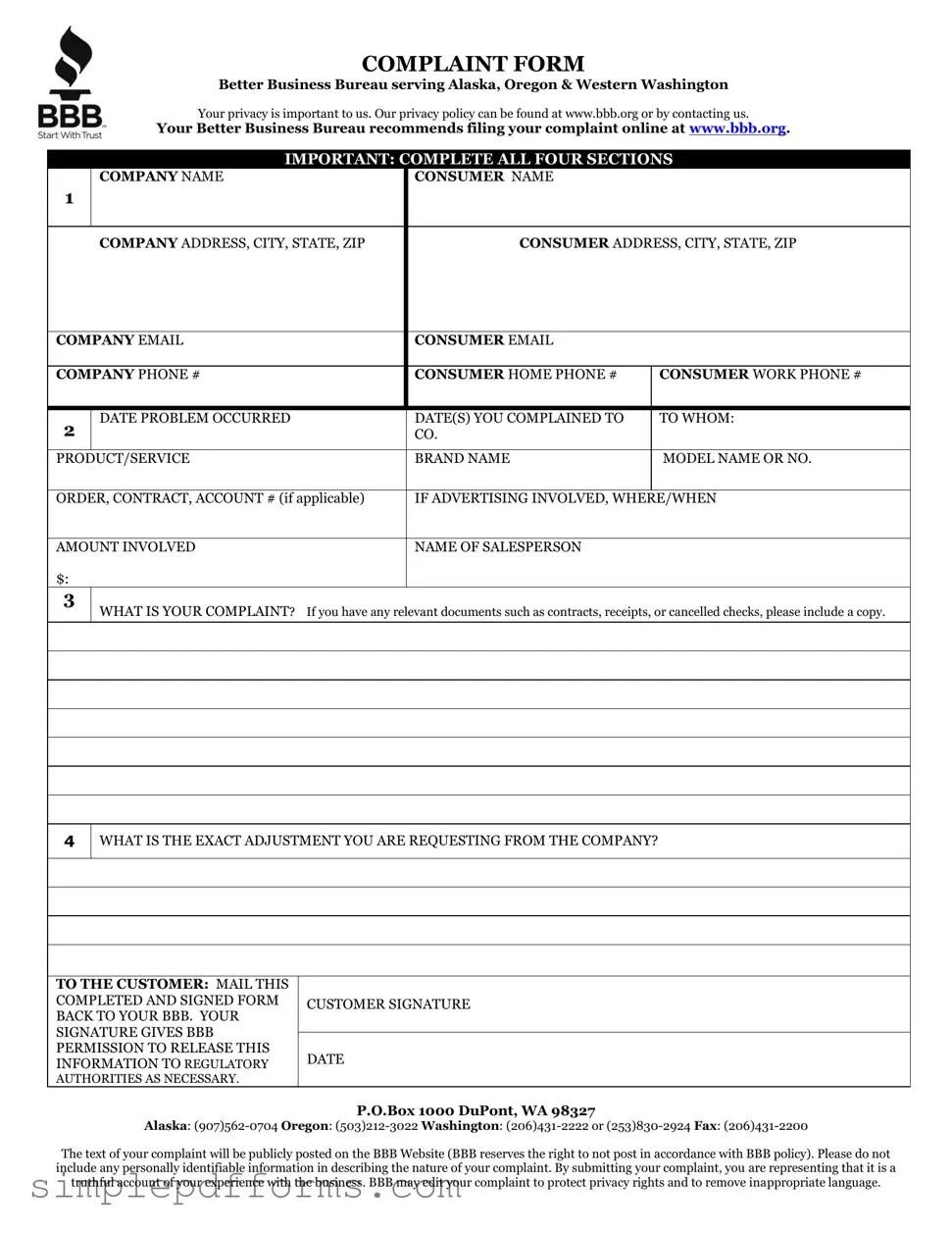Fill a Valid Bbb Complaint Form
The BBB Complaint Form is a tool that consumers can use to report issues with businesses to the Better Business Bureau. This form facilitates communication between consumers and businesses, aiming to resolve disputes effectively. By utilizing this form, individuals can share their experiences and seek assistance in finding a resolution.
Open Bbb Complaint Editor Now

Fill a Valid Bbb Complaint Form
Open Bbb Complaint Editor Now

Open Bbb Complaint Editor Now
or
Get Bbb Complaint PDF Form
Your form is waiting for completion
Complete Bbb Complaint online in minutes with ease.
